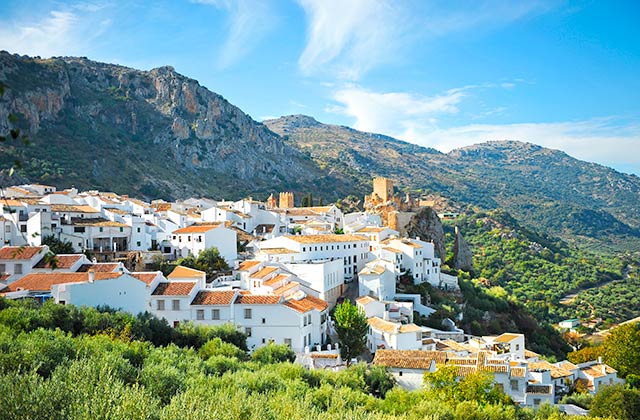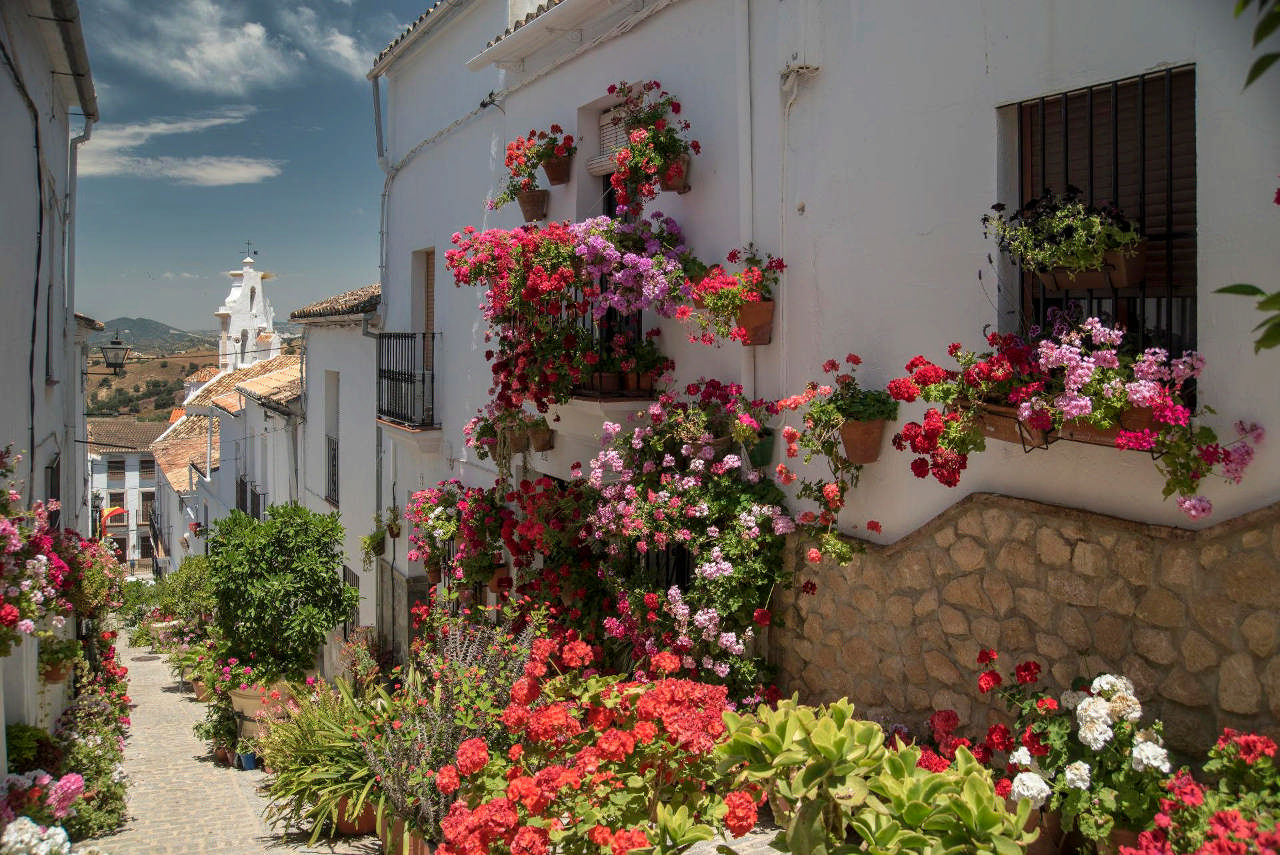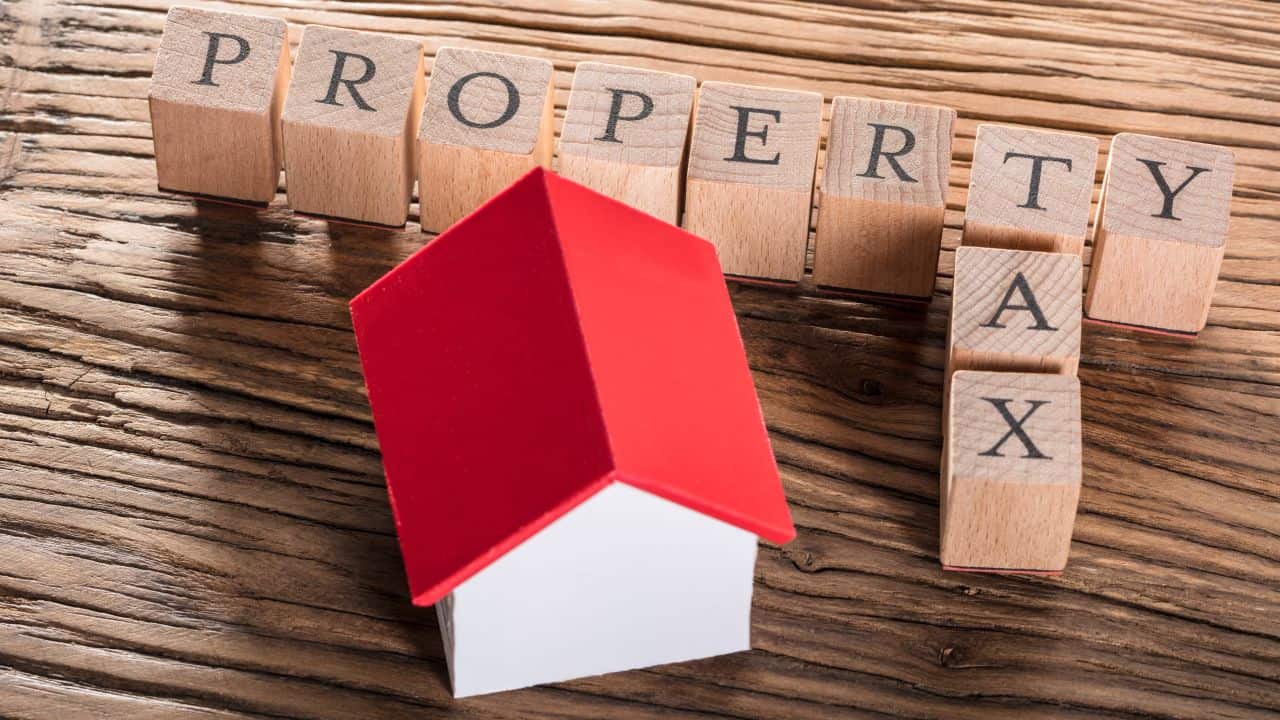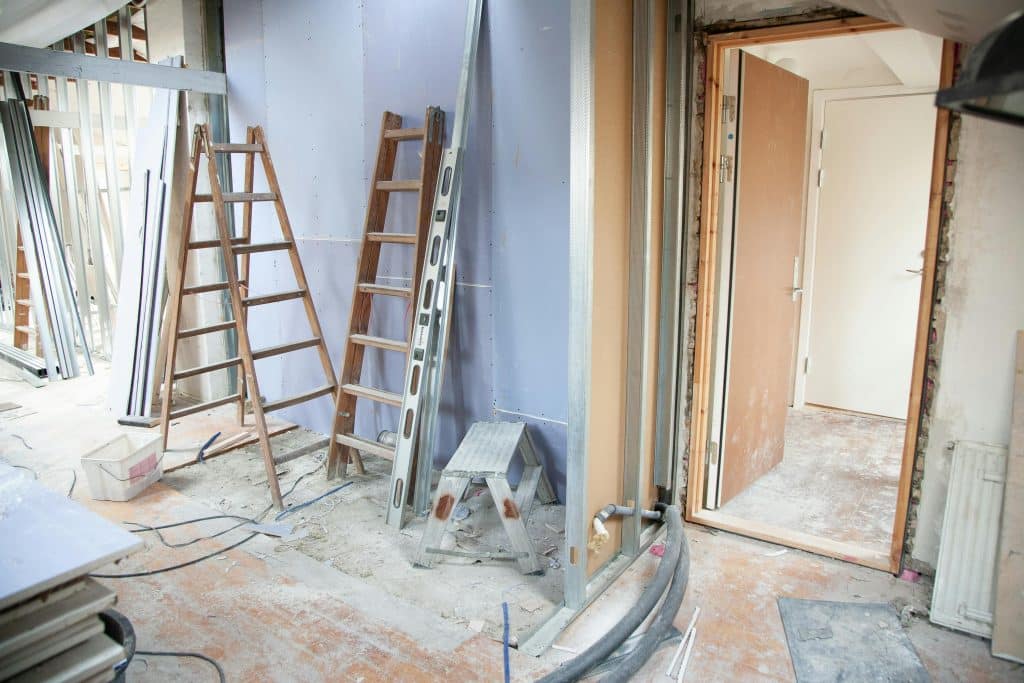Andalusia’s New Tax Incentives: A Step Towards Revitalising Rural Areas
Friday, February 28, 2025
In a bid to combat the persistent issue of rural depopulation, the Andalusian Government has announced a series of financial incentives designed to encourage home purchases in smaller villages. These incentives, which include significant tax reductions, aim to make rural living more appealing and financially viable.
The regional authorities have opted to reduce the Tax on Property Transfers and Documented Legal Acts (ITP/AJD) from 8% to 3.5%. This reduction will apply to properties that are intended as primary residences and are sold for less than €150,000. This tax incentive is targeted specifically at villages with fewer than 3,000 inhabitants, covering a significant portion of the rural community.

This initiative is expected to benefit 426 villages across Andalusia. It will be particularly impactful in regions such as Granada, which has 121 villages eligible for this scheme, followed by Almería with 69 villages, and Málaga with 59. Other provinces like Jaén, Huelva, Córdoba, Seville, and Cádiz will also see substantial benefits with numerous small villages included in this plan.
Carolina España, the Minister of Economy, Finance, and European Funds, articulated the government's rationale during the announcement. According to her, these measures are part of a broader strategy aimed at economic rejuvenation and reversing long-standing views of Andalusia’s tax environment. Describing Andalusia as having shifted from a "tax hell" to being the second least taxed community, she highlighted the significant influx of 200,000 new taxpayers in 2024. This positive migration flowing towards Andalusia is a testament to its improving financial landscape.
The financial difference that these tax reductions could have on potential homebuyers is substantial. As indicated by Carolina España, purchasing a property valued at the maximum allowable price of €150,000 under this scheme would result in savings of €6,750.
Such savings are not trivial and could make the purchase of a rural home much more attainable for many families. They serve as an incentive not just for locals but potentially for people from other regions looking to relocate to a rural setting.
The Andalusian Government has introduced additional supportive measures, focusing on increasing economic incentives for families with children living in villages at risk of depopulation. The bonus provided for each child in these areas has been doubled from €200 to €400. This financial assistance is applicable to children obtained through birth, adoption, or foster care and will be granted annually via Personal Income Tax (IRPF) credits.

This increase highlights a commitment to creating a supportive environment for families, ensuring that those choosing to live and raise children in rural villages are economically supported.
These policies are indicative of a broader recognition of the unique challenges faced by rural communities. Depopulation not only threatens the social fabric of these areas but also the economic viability of rural services and infrastructure. With fewer residents, maintaining schools, healthcare services, and other critical amenities becomes increasingly difficult.
By directly addressing the financial strain of moving to and living in these villages, the Andalusian Government is taking significant steps towards stabilizing and potentially reversing population decline. This initiative, coupled with the existing cultural and lifestyle appeals of rural living, can make a compelling case for choosing a rural village over a more crowded urban area.
For these initiatives to have a sustained impact, they must be part of a larger, integrated approach. Improving infrastructure, ensuring robust healthcare services, and fostering strong community networks are essential components that must complement the financial incentives. Additionally, creating job opportunities within these areas will be crucial to ensure that families and individuals moving to rural villages can sustain themselves over the long term.
Monitoring the effectiveness of these tax incentives will be vital. The government needs to track how many people are taking advantage of these measures and whether there is a corresponding and sustained increase in village populations. Feedback from these new residents can provide valuable insights into further refinements and improvements to the policy.

The recent announcement from the Andalusian Government marks a significant step in addressing the pressing issue of rural depopulation. Through targeted tax incentives and financial bonuses for families, the regional authorities are working to make rural living more appealing and financially viable. It’s a commendable effort that acknowledges the intrinsic value of rural communities and seeks to preserve and enhance them for future generations.
While these are promising initial steps, long-term success will depend on a holistic approach that integrates economic, social, and infrastructural considerations. The enthusiasm and positive reception from potential homebuyers and families will play a critical role in ensuring the vibrancy and resilience of Andalusia’s rural villages for years to come.
 2
Like
Published at 10:23 PM Comments (0)
2
Like
Published at 10:23 PM Comments (0)
Understanding IBI Tax in Spain
Wednesday, February 19, 2025

For many non-resident property owners in Spain, the intricacies of local taxes can be a baffling affair. Among these is the Impuesto sobre Bienes Inmuebles, more commonly referred to as IBI tax. Comparable to the UK's council tax, IBI is a property tax that few are aware of upon purchasing property in Spain. However, it's important since it comes into effect from the year following the purchase.
What is IBI Tax?
The Impuesto sobre Bienes Inmuebles (IBI) is an annual tax imposed on all property owners in Spain, regardless of whether they reside in Spain or abroad. In some regions, it may also be known as SUMA. The tax is collected by the local town or city council where the property is situated.
IBI tax is primarily calculated based on the rateable value of the property, which is a fixed percentage (ranging from 0.4% to 1.1%) of the property's cadastral value. The cadastral value (valor catastral) is a benchmark figure established for tax purposes, reflecting the value of the property and land.
Importance of IBI Tax
The cadastral value, which determines the IBI tax, is also used to calculate several other property-related taxes. It is, in essence, the foundation upon which various fiscal obligations are built.
When selling a property, for instance, it is common practice for the buyer’s legal representative to request past IBI tax invoices, often covering the previous four years. This is to ensure that there are no outstanding taxes that could become a financial liability for the new owner.
Additionally, not being diligent about IBI tax payments can lead to severe consequences, as will be discussed later.
When is IBI Tax Due?
The due date for IBI tax can vary depending on the specific town hall's regulations. Generally, payment is expected once a year, commonly between August and November. The responsibility for paying this tax falls on the individual who owns the property as of the 1st of January. This fixed date means that if you purchase a property after the 1st of January, you are not liable for that year’s IBI tax; the previous owner must cover it.
Consequences of Non-Payment
Failing to pay IBI tax is not a matter to be taken lightly. Local councils in Spain have become quite adept at tracking and collecting unpaid taxes, especially in the post-credit crunch era where financial models have tightened.
-
Property Seizure and Auction: The most drastic consequence of not paying the IBI tax is the risk of your property being seized and auctioned off by the authorities to recover the unpaid amount.
-
Inability to File Other Taxes: Non-payment of IBI tax can impede your ability to file and pay non-resident income tax. This includes both the quarterly tax if you lease out the property or the annual imputed income tax. These filings require a copy of the IBI tax invoice. Delayed payments of these taxes can incur fines, delay interests, and surcharges.
-
Sale Complications: When selling a property, any unpaid IBI tax can pose significant problems. A buyer's lawyer will typically ensure that all IBI taxes for the past four years have been settled, and failure to show this can lead to large retention amounts being practised by the buyer. Essentially, the buyer will withhold a significant portion of the sale proceeds to cover any potential unpaid taxes.
-
Forfeiture of Sales Proceeds Tax Rebate: If you are a non-resident selling property in Spain, the law requires that the buyer withhold 3% of the sale proceeds and pay this sum to the Spanish Tax Office. This withheld amount could potentially be reimbursed to the seller, but only if all taxes, including the IBI, are fully paid up to date. Non-compliance means forfeiture of this rebate, which could be a substantial financial loss.
With all these factors in mind, it's evident that IBI tax should be handled with the utmost seriousness. Ignoring it can lead to prolonged legal and financial hassles that are best avoided.
Managing IBI Tax Efficiently
Navigating local taxes in a foreign country can be daunting. However, there are steps you can take to ensure that your IBI tax obligations are met without undue stress:
-
Stay Informed: Make it a point to gather information about IBI tax as soon as you purchase a property. Local town halls can provide valuable information regarding rates, due dates, and payment methods.
-
Set Reminders: Because IBI tax is an annual obligation, setting reminders can help you stay on top of due dates. This way, you won’t inadvertently miss a payment.
-
Consult Professionals: Engaging with local tax advisers or legal professionals can simplify the process. They can guide you through the complexities of local tax regulations and ensure compliance.
-
Check Cadastral Value: Ensure you understand your property's cadastral value, which is pivotal in determining your IBI tax amount. This value might be updated periodically, impacting the tax you owe.
In conclusion, understanding the crucial aspects of the IBI tax can help property owners in Spain manage their financial responsibilities effectively. By staying informed, consulting experts, and adhering to payment schedules, you can ensure that this local tax does not become a burden on your property-owning experience in Spain.
Every property owner in Spain, whether resident or non-resident, needs to be mindful of their IBI tax duties. This tax not only forms the basis of other related taxes but also ensures smooth real estate transactions and compliance with local financial regulations.
 0
Like
Published at 5:44 PM Comments (0)
0
Like
Published at 5:44 PM Comments (0)
Home Renovations in Spain: Maximising Your Budget
Friday, February 7, 2025

When purchasing a home in Spain, it's inevitable that thoughts about renovating the property will arise, particularly if the home is in less than-perfect condition. A complete overhaul isn't always necessary; sometimes, partial renovations can revitalise the space and make it functional without breaking the bank. Whether your property needs a comprehensive upgrade or a minor facelift, understanding what you can achieve within different budget constraints is essential.
Complete Renovation:
For those considering a full renovation of a typical 80-90 square metre home, a budget of around €60,000 should cover most needs, even when using basic materials and finishes. This budget accounts for significant expenses such as replacing plumbing and electrical systems, which are often outdated or in disrepair and require substantial investment.
However, if your property is in better condition or budget constraints exist, a more focused renovation with a smaller budget can still yield impressive results.
Transforming Your Space:
With a budget of approximately €25,000, you can address several key areas of your home. Consider targeting partial renovations to bring about the most value and usability. Here’s an example of what this budget could achieve:
-
Kitchen Upgrades:
- New Appliances: Equip your kitchen with modern appliances such as a fridge, dishwasher, hob, microwave, and sink.
- Cupboard Makeover: Refresh existing cupboards with a coat of paint, updated handles, and new high-quality countertops.
-
Bathroom Improvements:
- New Fixtures: Replace outdated bathroom furniture and upgrade the toilet for a modern touch.
-
Home-Wide Enhancements:
- Interior Doors: Install new, high-quality interior doors throughout the home, typically costing around €3,000.
- Painting: Hiring a professional to repaint your home will give it a fresh, clean look.
- Flooring: Consider replacing old floors with durable, wood-effect porcelain tiles for a modern and resilient finish.
These upgrades can be achieved for approximately €18,000, leaving a budget for additional practical changes, such as adding built-in wardrobes in the bedrooms.
Insulation and Efficiency
While not as visually exciting, investing €20,000 in insulation and efficiency upgrades will make your home more comfortable and reduce energy costs over time:
- Windows: Replace all windows in a 70-80 square metre, three-bedroom home for about €12,000.
- Air Conditioning: Invest in a high-quality air conditioning system, essential for Spain’s hot summers.
- Flooring: Upgrade flooring to improve insulation and add aesthetic value.
- Underfloor Heating: If the budget allows, adding underfloor heating can greatly enhance comfort.
- Additional Finishing Touches: Any leftover budget can be used to refurbish a bathroom or purchase a new sofa, ensuring the living space is as comfortable as it is efficient.
Upgrading with a slightly larger budget: Higher Quality and Structural Changes
A budget of approximately €35,000 allows for higher quality materials and even structural changes. Here’s how this budget could transform your home:
-
Premium Flooring:
- Wood-Effect Porcelain Tile or Solid Wood: Instead of opting for budget-friendly laminate, higher-end options such as wood-effect porcelain tile or solid wood offer greater durability and aesthetic appeal. Depending on the chosen model, installing porcelain flooring in an 80-square-metre flat can range between €5,500 and €7,000.
-
High-End Kitchen Countertops:
- Granite or Synthetic Surfaces: Invest in high-end granite countertops or premium synthetic surfaces from brands like Silestone, Dekton (by Cosentino), Techlam (by Levantina) or Neolith.
-
Complete Overhauls:
- Kitchen and Bathroom Renovations: With this budget, you can consider comprehensive renovations of both the kitchen and bathroom, ensuring these spaces are as functional and modern as possible.
- Structural Changes: Knock down partition walls to create an open-plan kitchen and living area, improving space and functionality.
Estimating Value Increase and Savings
One interesting tool to consider is a renovation calculator, which can help estimate the increase in your home's value post-renovation based on its type and location. It can also determine potential annual savings on your energy bills, particularly important as Spain’s residential properties are, on average, over 40 years old and contribute significantly to the country’s carbon dioxide emissions. Aligning renovations with goals to reduce environmental impacts could contribute to achieving "energy neutrality" by 2050.
Embarking on a home renovation in Spain, whether you have a budget of €25,000, €35,000, or higher, requires careful planning and thoughtful allocation of resources. By focusing on key areas and considering both aesthetics and efficiency, you can transform your living space into a more beautiful, functional, and sustainable home. Whether it’s upgrading kitchens and bathrooms, enhancing energy efficiency, or making structural changes, every euro invested can help create a space perfectly tailored to your needs and lifestyle.
 1
Like
Published at 9:39 PM Comments (0)
1
Like
Published at 9:39 PM Comments (0)
Spam post or Abuse? Please let us know
|
|